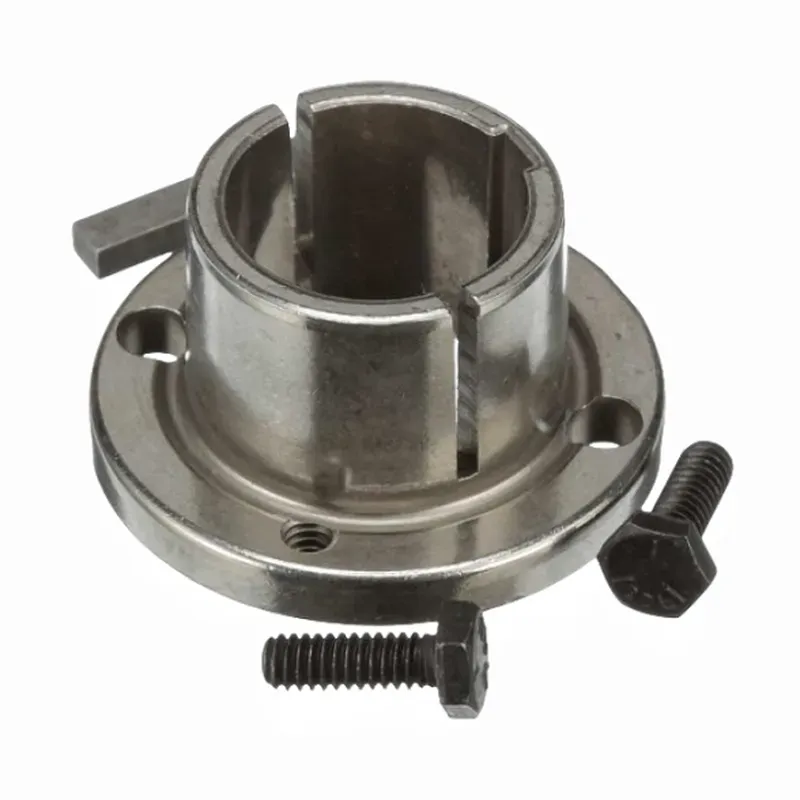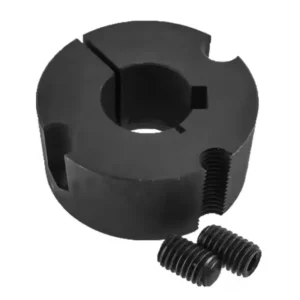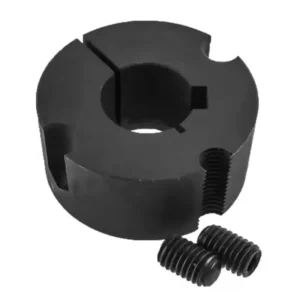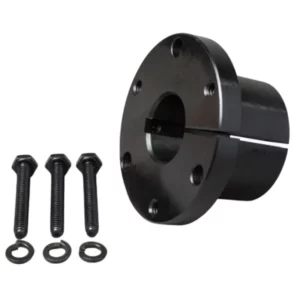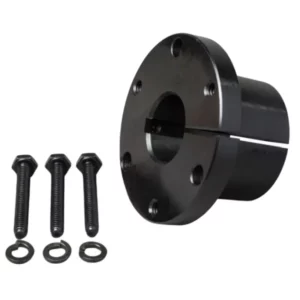S2 Type Split Taper Bushings
S2 Type Split Taper Bushings are mechanical components designed to securely mount sprockets, pulleys, or other power transmission elements onto shafts. They use a split-tapered design, which ensures a tight, concentric grip on the shaft while minimizing vibration and slippage. Made from durable materials like steel, these bushings feature a split design that allows for easy installation and removal. The taper provides a self-locking mechanism, enhancing torque transmission and alignment precision for industrial applications.
S2 Type Split Taper Bushings are mechanical components designed to securely mount sprockets, pulleys, or other power transmission elements onto shafts. They use a split-tapered design, which ensures a tight, concentric grip on the shaft while minimizing vibration and slippage. Made from durable materials like steel, these bushings feature a split design that allows for easy installation and removal. The taper provides a self-locking mechanism, enhancing torque transmission and alignment precision for industrial applications.
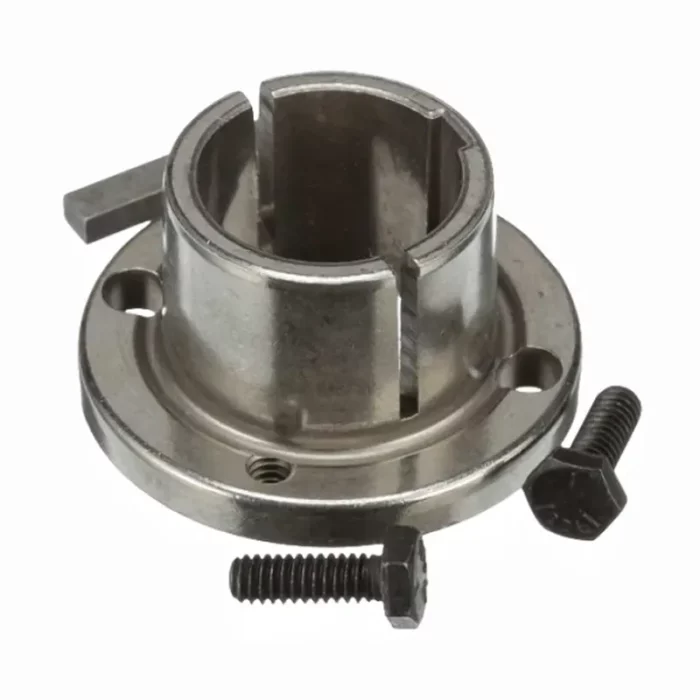
S2 Split Taper Bushing Dimensions
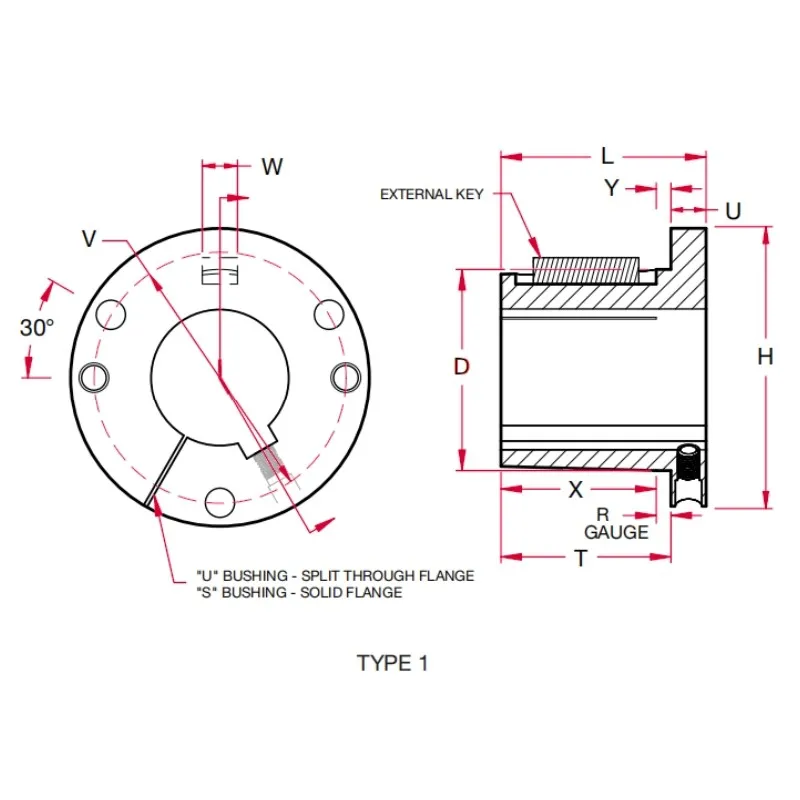 | 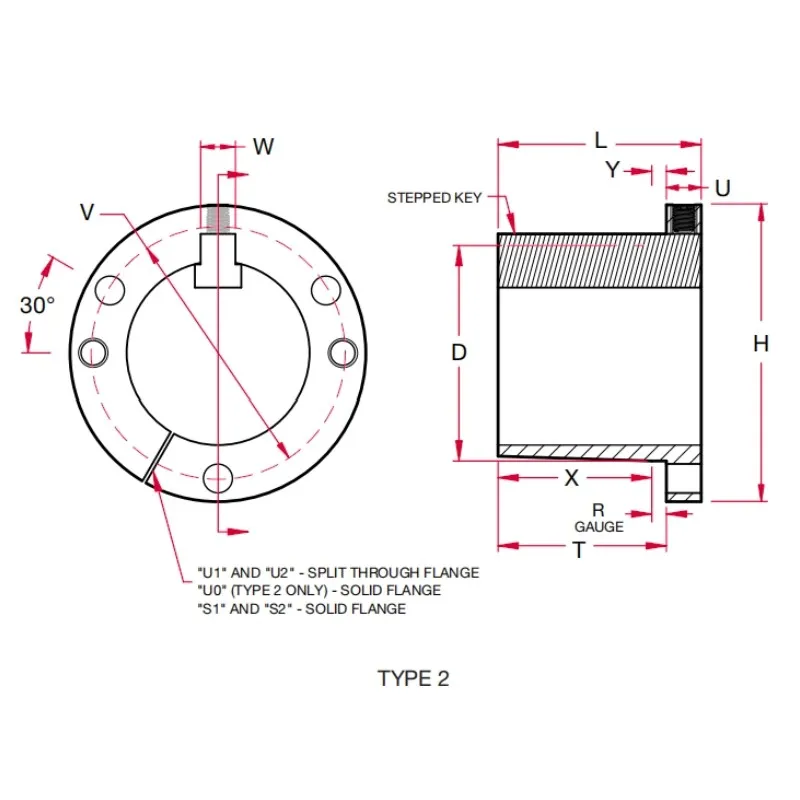 |
| Bushing Type: | S2 | |
| Dimensions(in): | L | 6-3/4 |
| U | 3/4 | |
| T | 6 | |
| D Large End | 4.625 | |
| D Small End | 4.27 | |
| H | 6-3/8 | |
| W | 3/4 | |
| X | 5-11/16 | |
| Y | 5/16 | |
| R | 5/16 | |
| Bolt Circle (V): | 5-3/8 | |
| Stock Bore Range(in): | Type1(Min.) | 1-7/8 |
| Type1(Max.) | 3-3/16 | |
| Type2(Min.) | 3-1/4 | |
| Type2(Max.) | 4-3/16 | |
| Cap Screws: | # of Screws | 3 |
| Thread Dia.(in) | 1/2 | |
| Length(in) | 2-1/4 | |
| Wrench Torque(in-lbs): | 840 | |
| Ave.weight(lbs): | 19 | |
Key Benefits of S2 Type Split Taper Bushings
S2 type split taper bushings offer several key benefits for industrial applications. Here are the primary advantages:
- Enhanced Shaft Grip and Torque Transmission: The split taper design ensures a tight, conformal fit on the shaft, maximizing grip and torque transfer. This reduces slippage, even under high loads, ensuring reliable power transmission for sprockets, pulleys, or couplings in demanding machinery.
- Ease of Installation and Removal: The double-split barrel and flanged design allows for quick installation and removal without requiring extensive shaft machining. This saves time during maintenance, minimizing downtime and improving operational efficiency in industrial settings.
- Versatility Across Shaft Sizes: S2 split taper bushings accommodate a wide range of shaft diameters, from 2 to 4 inches, making them adaptable for various applications. This flexibility reduces inventory needs, as one bushing type fits multiple machinery configurations.
- Improved Concentricity and Reduced Vibration: The solid flange and self-locking 3/4" per foot taper ensure precise alignment between the shaft and component. This minimizes vibration, extends equipment lifespan, and enhances performance in high-speed or high-torque environments.
- Durability and Reliability: Constructed from premium steel, S2 bushings resist wear and maintain integrity under heavy loads. Their robust design, with keyed shaft and hub connections, ensures long-lasting performance, even in harsh industrial conditions.
- High Load-Bearing Capacity: Engineered to handle substantial radial and axial loads, S2 split taper bushings ensure stable operation in heavy-duty applications. Their robust construction supports consistent performance, preventing failures in critical systems like conveyors or industrial drives.
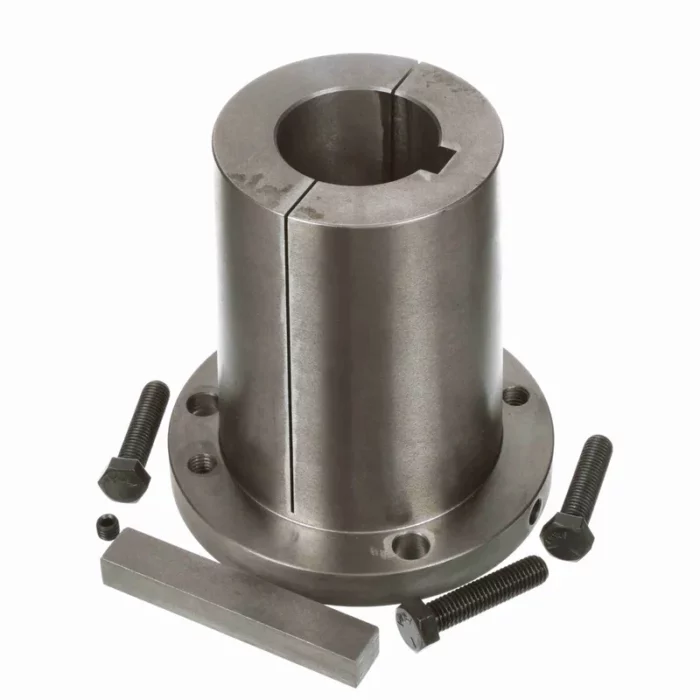
Split Taper Bushings vs. QD Bushings
Split Taper Bushings and QD (Quick Detachable) Bushings are both used to mount pulleys, sprockets, or sheaves onto shafts, but they differ in design and application. Split Taper Bushings feature a double-split barrel and a flanged outer diameter, with the barrel split in two places and keyed to both the shaft and the component. This design provides a secure grip, even if fasteners loosen, and allows for easy installation in tight spaces. Common sizes include G, H, P1, and Q1, with bore sizes from 3/8" to 7-1/4".
QD Bushings, like JA, SH, or SK, have a single split through the flange and taper, enabling quick installation and removal by tightening or loosening cap screws. They’re ideal for applications needing frequent maintenance due to their user-friendly design. Split Taper Bushings excel in high-torque settings requiring stability, while QD Bushings prioritize ease of use and versatility. The choice depends on factors like load, maintenance frequency, and space constraints.
| Feature | Split Taper Bushings | QD Bushings |
|---|---|---|
| Design | Flanged bushing with a barrel split in two places, not extending through the hub. | Flanged bushing with a single split through both the flange and taper. |
| Keying | Keyed to both the shaft and the drive component (internal and external keys). | Typically keyed to the shaft only; no key on the outer diameter. |
| Mounting Options | Single mounting method (standard mount). | Supports standard and reverse mounting for greater flexibility. |
| Installation | Requires precise alignment of internal and external keys; bolts inserted from flange side only. | Easier installation due to split design; bolts can be inserted from either side depending on mount type. |
| Removal | More complex removal, as it lacks the QD mechanism for quick release. | Quick and easy removal by using bolts as jackscrews in threaded holes. |
| Holding Power | Strong grip due to dual-key design, effective even if fasteners loosen slightly. | Relies on cap screw tightening; may slip if fasteners loosen. |
| Stability | Excellent for high-torque applications due to dual-key alignment preventing rotation. | Good stability but less robust than split taper in extreme high-torque settings. |
| Flange Design | Flanged, taking up more shaft space. | Flanged, similar space requirement but with a split through the flange. |
| Space Efficiency | Less compact due to flange and dual-split barrel design. | Slightly more compact due to single split, but still flanged. |
| Common Sizes | Examples include G, H, P1, P2, Q1, Q2, R1, R2, S1, S2, U0, U1, W1, W2. | Examples include JA, SH, SDS, SD, SK, SF, E, F, J, M, N, P. |
| Applications | Ideal for heavy-duty, high-torque applications like conveyors or industrial machinery. | Preferred for applications requiring frequent maintenance or component changes. |
| Durability | Highly durable due to robust design and keyed connections, reducing wear. | Durable but may wear faster in high-vibration settings if not properly secured. |
| Cost | Generally more expensive due to complex design and additional keying. | Often less expensive and more widely available. |
| Alignment Precision | Requires precise alignment of both keys for optimal performance. | Less stringent alignment needs due to simpler keying and flexible mounting. |
| Maintenance | Less suited for frequent removal/reinstallation due to complex assembly. | Designed for quick maintenance, ideal for systems needing regular adjustments. |
| Load Capacity | Superior for high-load, high-torque applications due to secure dual-key grip. | Suitable for moderate to high loads but less secure under extreme conditions. |
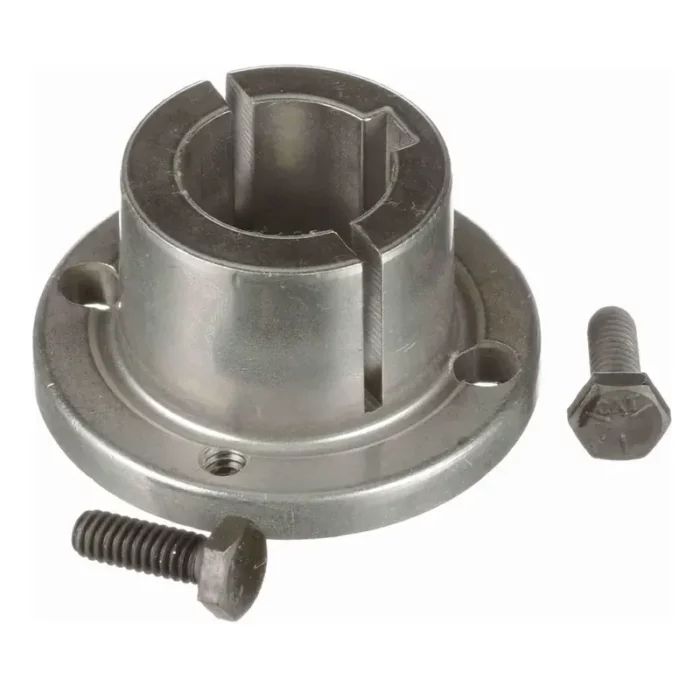 | 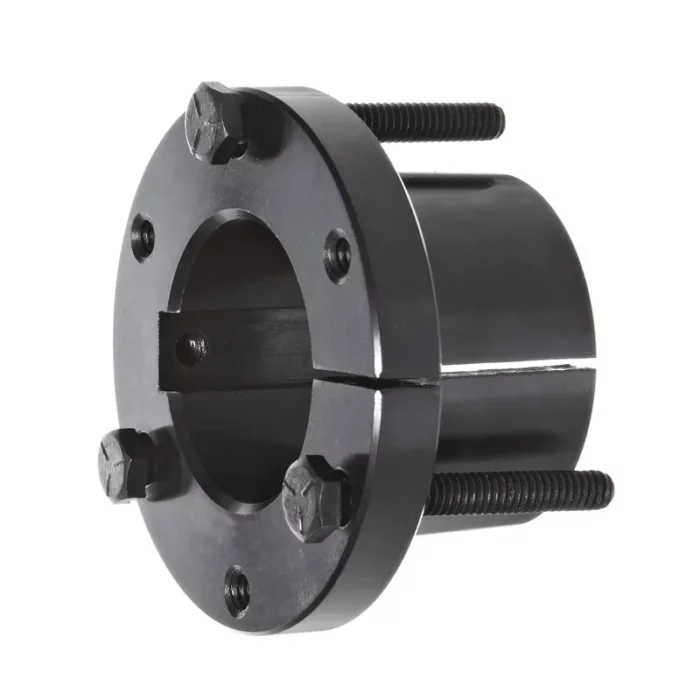 |
| Split Taper Bushings | QD Bushings |
Additional information
| Edited by | Yjx |
|---|

